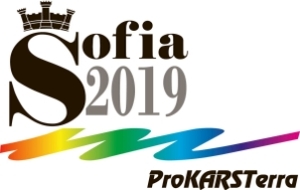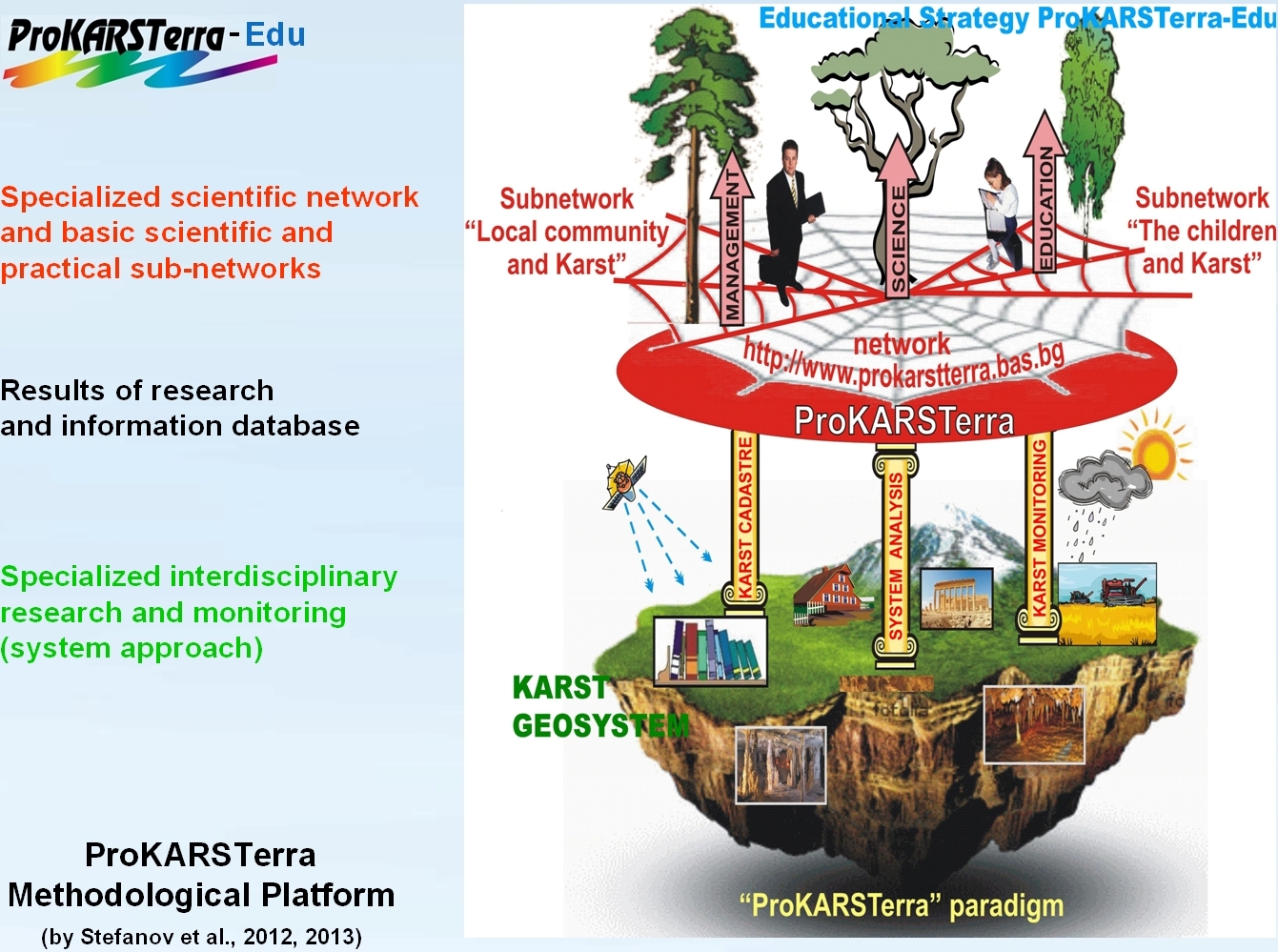
Strategy ProKARSTerra-Edu
The main objective of the ProKARSTerra-Edu strategy is through innovative educational forms to provide the minimum of knowledge, skills and competencies about karst and to create the necessary conditions for the training of key karst specialists. The main priority of this strategy is the achievement of optimal land use in the karst territories of Bulgaria.
The methodological platform of the ProKARSTerra-Edu strategy is the original ProKARSTerra paradigm. By integrating the concepts of Karst Geosystems and Lifelong Learning, it combines three important components, namely scientific, research, management and educational ones.
And what is ProKARSTerra?
In 2009, NIGG-BAS started the development of an international project funded by the Scientific Research Fund, under the title "Development of an experimental model of complex monitoring for sustainable development and management of protected karst territories". It became known with the ProKARSTerra abbreviation:
1. ProKARSTerra - from English: Protected Karst Territories, but also:
2. ProKARSTerra - from Latin: Pro Karst Terra (for the karst land)
This allowed and prompted the use of ProKARSTerra in a much broader sense and it became a trademark of the Experimental Laboratory of Karstology.

Theoretical-Methodological Platform of the educational strategy "ProKARSTerra-Edu"
In the educational strategy of ProKARSTerra-Edu the main focus is on field training in the actual conditions of model karst territories using research methods.
The exceptional combination of morphogenetic karst types makes Bulgaria a unique natural laboratory for studying this natural phenomenon. Moreover, the millennial active presence of humans has left deep traces on karst. Karst, and especially its underground "study rooms" (caves), are very attractive to young people and offer opportunities for teaching out of the classroom, in the real conditions of karst territories and for applying research methods and experiments, incl. using specialized equipment.
The specific environment and learning methods generate positive emotions that stimulate creativity and lasting interest in karst. Regardless of the relatively limited time for the competition, terrain training is very effective because it forms synthesized knowledge acquired intensively in the natural environment under the guidance of highly qualified specialists.
But in addition to education about karst, terrain training in a karst environment implies another, especially up-to-date education through karst.
Due to the specifics of karst and its pronounced interdisciplinary nature, students involved in field education understand the connections between what they learn in the different school subjects and try to implement this knowledge in a real natural environment. In turn, teachers in different subjects and with different professional specializations have the opportunity to discuss and test different variants of interdisciplinary links - one of the most important contemporary educational issues.
In the development of the ProKARSTerra-Edu educational strategy, different forms of field training have been experimented with participants from different age, educational, professional and national groups. Experience has proven that the Traveling School of karst is most interesting and effective. The experience gathered in working with pupils during the 2 Traveling karst schools held in Bulgaria is also applicable to the field work of the current competition.
For additional information: http://prokarstterra.bas.bg/ProKARSTerra-Edu
